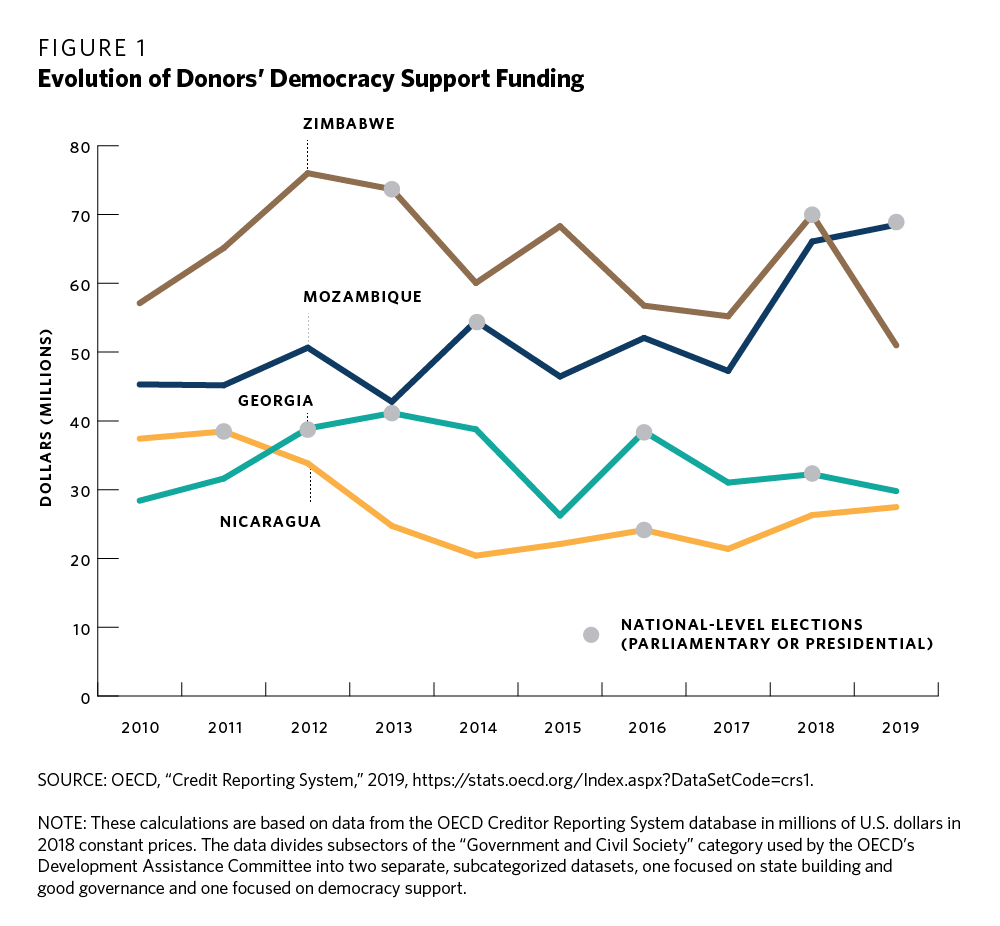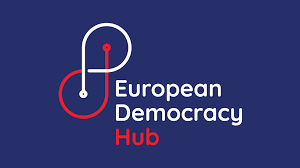
Dominant-party regimes present especially high-profile and thorny dilemmas for international democracy support in that they can often co-opt programs that offer support to state organs, election commissions, technical bodies, facilitators of intraparty mediation, and members of civil society, according to Ken Godfrey, executive director of the European Partnership for Democracy, and Richard Youngs, a senior fellow in Carnegie’s Democracy, Conflict, and Governance Program.
 Case studies of Georgia, Mozambique, Nicaragua, and Zimbabwe suggest that international democracy support should dedicate more attention to the local level to create a fabric of organizations that can mobilize when needed and that can foster greater awareness of democratic principles among a wider array of citizens. This on-the-ground empirical research reveals three policy considerations of specific importance in dominant-party regimes: party support and talks, elections, and direct activism, they write for the European Democracy Hub:
Case studies of Georgia, Mozambique, Nicaragua, and Zimbabwe suggest that international democracy support should dedicate more attention to the local level to create a fabric of organizations that can mobilize when needed and that can foster greater awareness of democratic principles among a wider array of citizens. This on-the-ground empirical research reveals three policy considerations of specific importance in dominant-party regimes: party support and talks, elections, and direct activism, they write for the European Democracy Hub:
- There is a particularly acute need for donor support aimed at giving rivals to the dominant party an ability to compete. Yet the four cases demonstrate that outside actors have struggled to make any headway in this regard and have generally eschewed direct backing for opposition parties. Rather, they have focused increasingly on creating the rules of a more level playing field….
- Funders have increasingly worked to address the kinds of election distortions that underpin dominant parties’ advantages, even if the relevant data shows that a majority of their resources are dispersed close to election day rather than over the longer electoral cycle. …. Yet electoral support has struggled to gain traction in these regimes. …..
- Across all four countries, many of the authors’ interlocutors insisted that donors need to try supporting out-of-the-box ideas, nontraditional organizations, and new forms of mobilization. Protests have flourished as a distinct element of democratic expression in all these cases…… Donors are notoriously wary of supporting protest movements beyond statements in favor of freedom of assembly. Yet in dominant-party regimes, they can be one of the few paths toward positive change……
These case studies suggest that international democracy support should dedicate more attention to the local level to create a fabric of organizations that can mobilize when needed and that can foster greater awareness of democratic principles among a wider array of citizens, Godfrey and Youngs conclude. RTWT







